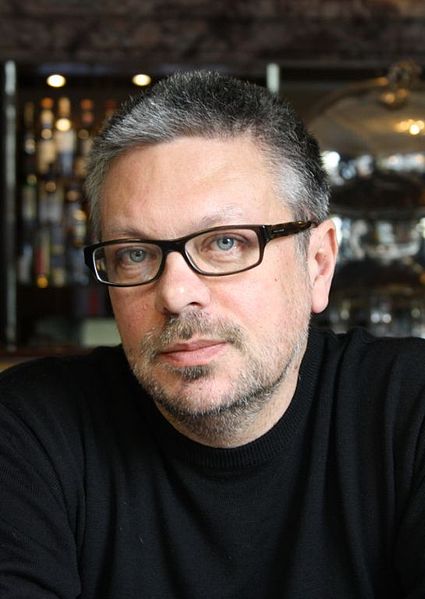I admit I haven't read through all the 16 pages of this thread and I probably posted similar tings before but still. I think from contemporary writers in Russia the most famous are Pelevin, Sorokin and Akunin. Of this I've read only Pelevin. He is probably available in translation (I've seen his novels in English in the shops in Helsinki). He writes post-modernist tricky novels, mixing philosophy, his beloved buddhism and social criticism of contemporary Russia, but he does it all in a light manner with a good deal of humour and inventiveness. His first novel which became instantly a cult in Russia was
Generation P, which I guess came out in English as
Babylon, a conspiracy/sci fi/post modern/social critique of capitalism/communism with a twisted cinematographic plot now turned into a movie. I personally liked it as for me he was the first writer that made an attempt to write something meaningful and kind of deep of the transition that Russian society was undergoing in its sudden embrace of capitalism. Generation P stands for "the generation that chose Pepsi", a spin on a popular Pepsi commercial of early 90s.
He wrote many books so far and as of late I think he has been repeating himself. I tried to read his
Ampir V, a story about vampires in the late Soviet Union, but I dropped it for repetitiveness. But another book of his I truly enjoyed was "
The Sacred Book of the Werewolf, again a fantastic parabole from modern Moscow, sprinkled with a good deal of humor (I actually laughed out loud several times, but I don't know if the humour could survive the translation) and some really cool metaphors on Russia today. Plus Buddhism and general pondering on Western modernity.
Here is his wikipedia page:
http://en.wikipedia.org/wiki/Victor_Pelevin
There is also a NY Times review of
The Sacred Book of the Werewolf, quite decent overall, although by the end I did stumble on a missed shot at spotting a pun.
The reviewer writes:
"Early in the novel, as A Hu-Li plies her trade, her signals get jammed when she brushes up against a member of the F.S.B. (the new K.G.B.), the “captain of the hit men’s brigade.” Alexander Sery (
his surname, which means “gray” in Russian, is also a euphemism for the black market)" this is a typical "intellectual error" of overthinking. Any Russian child, of course, would immediately say that "seryi" (серый) is not an allusion to a 'grey market' (nobody in Russia calls back market "grey") but a nickname of a wolf in all Russian fairy tales. I wonder how many more missed shots are contained in the translation and how much is it possible for a foreign reader to spot puns and tropes that stem from Russian pop and not so pop culture, but this is a topic for another thread.
the review can be found here:
http://www.nytimes.com/2008/09/28/books/review/Schillinger-t.html?pagewanted=1&_r=2

